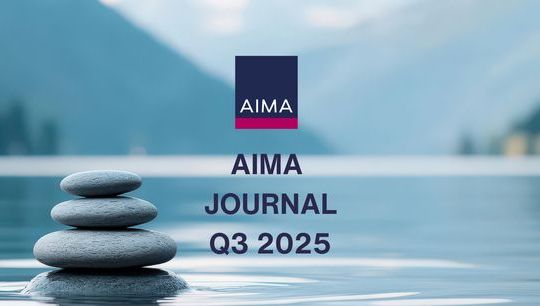CEO Blog: Volatility? What Volatility?
By Jack Inglis, CEO, AIMA
Published: 21 December 2016
In its latest edition, The Economist declares that, Despite renewed volatility, hedge funds underwhelm, and in the subsequent piece, the writer claims that “hedge funds have had a measly few years”. Such analysis is wrong. Assets under management by hedge fund firms are at record levels ($3.2 trillion, according to Preqin), and there have never been more pensions or other institutional investors allocating $1bn or more to these funds. Nor, as the Economist claims, has it been “the most volatile year for markets in a long while”.
Volatility for most of this year has been below historic averages, some notable political events notwithstanding. The long-term average (since 1990) for the Chicago Board Options Exchange Volatility Index (VIX), which reflects market expectations of near-term volatility, is 19.7. In 2016, the VIX average has been 15.9 (last year it was higher, at 16.6). Genuine volatility spikes are when the VIX breaches 30.
It may seem counter-intuitive, given the turbulent events of this year, but we are not in a period of high volatility by historic measures. Amid the European sovereign debt crisis, “vol” was considerably higher – for example, in June 2010 it was 34.54, while in September 2011, the VIX was at 42.96. It was also much higher during the financial crisis. From September 2008 to August 2009, the average value of the VIX was 39.46, with the peak being 59.89 in October 2008. The current period is more akin to the last periods of relative calm in the financial markets, from 1993-1995 and 2004-2006.
Even during the most volatile moments this year, following the ‘Brexit’ referendum and the US presidential election, the VIX hit ‘only’ 25.8 and 22.5 respectively. Within weeks, it had returned below the historic average.
How do hedge funds perform when volatility is higher? At AIMA, we have looked at hedge fund performance since 1990 during periods of peak volatility – when the VIX was 32.1 or above (the top 5% of VIX values). We found that, during these months (there are 17 of them), hedge funds as a whole and equity hedge funds outperformed the S&P total return index on the majority of occasions.
This does not mean that hedge funds only perform better during periods of high volatility. Indeed many individual hedge funds have performed very well in 2016. To the end of October, average hedge fund performance was about +5% (Preqin data), which was the same as the MSCI World equity index. In the final analysis, when the full-year numbers are in, we expect hedge funds to have shown they have performed better than commentators are suggesting. And that’s in a below average year for volatility.







